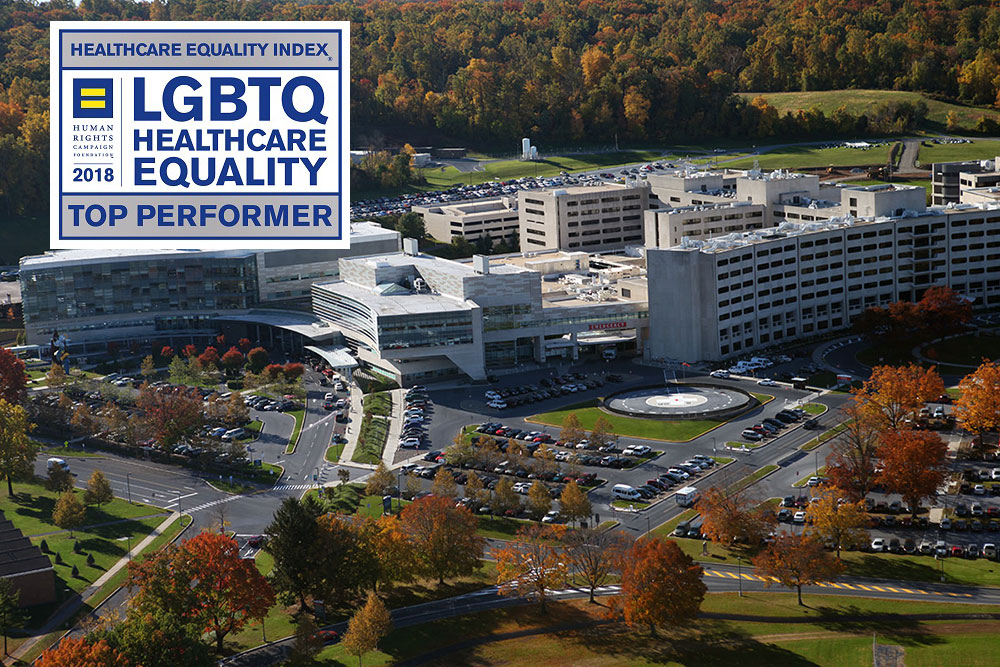Penn State Health and College of Medicine honored for LGBTQ healthcare equality

Penn State Health Milton S. Hershey Medical Center earned “Top Performer” designation in the Human Rights Campaign (HRC) Foundation's 2018 Healthcare Equality Index. The designation recognizes the Medical Center's equitable treatment and inclusion of LGBTQ patients, visitors and employees.
Hershey Medical Center was among 95 health care facilities earning the recognition, and the only hospital recognized in central Pennsylvania. Pennsylvania is a state that lacks LGBTQ protections but has many health care institutions that made great strides with their LGBTQ education in 2018.
“Penn State Health Milton S. Hershey Medical Center is committed to providing the highest quality education, employment experience, and medical care to LGBT students, employees and patients,” said Lynette Chappell-Williams, chief diversity officer and associate dean of diversity and inclusion. “The HRC Health Equality Index recognition as a top performer is validation that we are heading in the right direction of supporting LGBT employees and providing quality health care for LGBT patients.”
The Medical Center received full scores in three of the four criteria for its excellent nondiscrimination and staff training, employee benefits and policies, and patient and community engagement with regard to LGBTQ. It just missed out on receiving full points for the final section, patient services and support, where additional work is underway on getting those publicized.
The Office for Diversity, Equity and Inclusion is excited to start work on the initiatives in order to earn “Leader in LGBTQ Healthcare Equality” designation next year.
Pennsylvania ranks third overall among states in the number of HEI participants, with 34 health care facilities participating, and ranks fifth among states in the number of LGBTQ Healthcare Equality Leaders, with 19 facilities.
A record 626 health care facilities actively participated in the HEI 2018 survey, committing to LGBTQ-inclusive policies and practices, HRC said. Of facilities surveyed, 418 earned a top score of 100, and received HRC's “Leader in LGBTQ Healthcare Equality” designation. In addition, the HRC Foundation proactively researched key policies at more than 900 nonparticipating hospitals across the nation.
Progress reflected in the 2018 HEI include:
- 59 percent increase in hospitals that have written gender-transition guidelines
- 42 percent increase in hospitals that offer trans-inclusive benefits
- 21 percent increase in the number of participants that have gender-specific policies
- 63 percent increase in training hours recorded – clocking in at more than 70,000 hours of LGBTQ care training provided
Read more about the award recipients in this Human Rights Campaign article.
If you're having trouble accessing this content, or would like it in another format, please email the Penn State College of Medicine web department.
